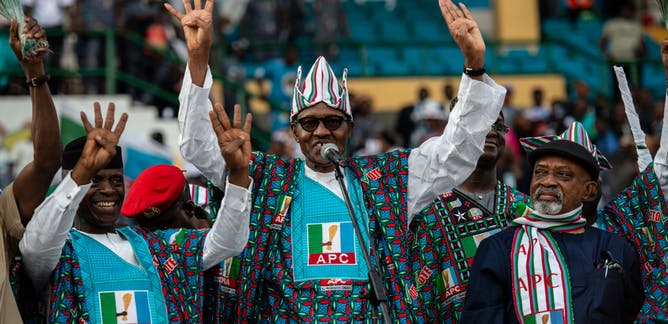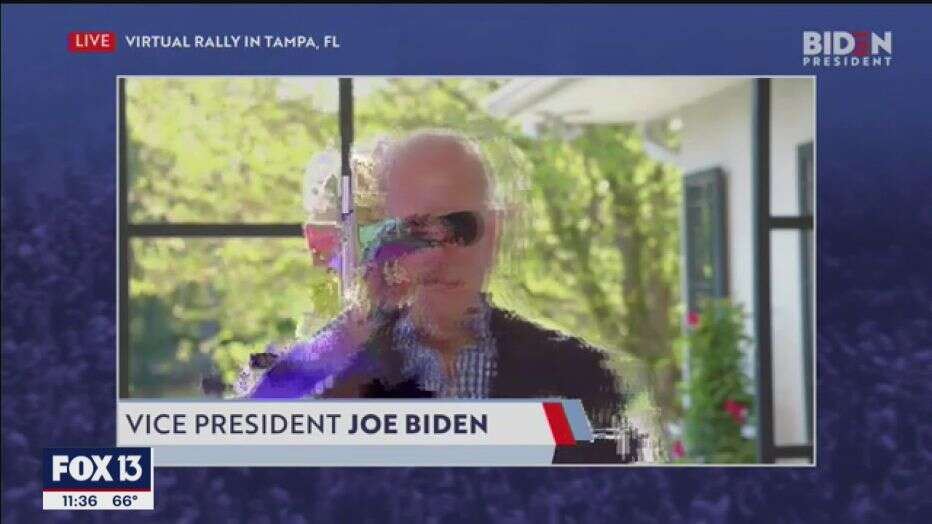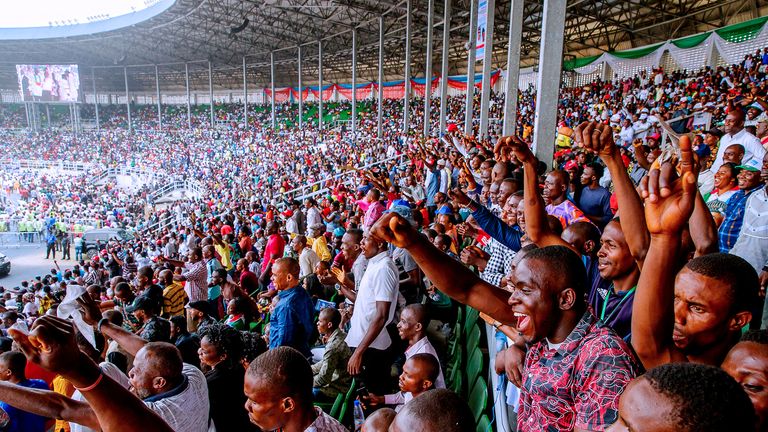Due to current coronavirus pandemic, the Nigeria Centre for Disease Control (NCDC) has released guidelines for the conduct of elections across the country.
In the new guideline released on Monday, the NCDC called for politicians to adopt virtual campaigns and rallies instead of physical in-person rallies.
This recommendation comes after some politicians were found holding physical rallies despite the increasing number of coronavirus cases in the country.
Recall that Governor Seyi Makinde of Oyo state in March organised a political rally in the state amidst the coronavirus outbreak.
Elections during COVID-19
This year, some states will hold gubernatorial and local government elections. However, with the current pandemic still spreading fast, it will be too risky converging the usual crowd and fanfare that are the hallmark of election campaigns in Nigeria.
Therefore, a guideline to control the election process was provided to reduce exposure.


The document released by the NCDC contained key public health guidance including recommendations and actions that should be taken to reduce the risk of exposure to COVID-19 for all voters, electoral officers, candidates and other participants during the electoral process.
During the campaign period, NCDC recommended that politicians limit the number of people gathering to one-third of the actual capacity of the venue with a social distancing of at least 2 metres.
It added that hand hygiene facilities including soap and water/ hand sanitisers should be made available for people before gaining access to campaign ground. It also called for the mandatory use of face masks for everyone attending any campaign rally.
Apart from the general COVID-19 precaution, the health officials encouraged politicians to use virtual campaigns and rallies.
However, while the call for virtual rallies by NCDC is reasonable with the cases of COVID-19 infection now above 29, 000, it may not work in Nigeria due to the following reasons.
Breaking from Traditional rallies
Nigerian politicians have polished their art of public campaigns and developed it as a system that works since the nation’s independence in 1960.
For instance, during last years election, Presidents Buhari campaign rallies were mostly at full capacity with Port-Harcourt rally that held at the 38, 000 Adokiye Amiesimaka Stadium completely overcrowded.
Although the pandemic calls for alternatives methods like virtual rallies, many of them won’t be quick to adopt it, especially when there is no proof of its effectiveness in the country.


Adoption of Technology
The whole idea of virtual rallies goes beyond announcing or broadcasting on TV as many Nigerian politician believe. While the use of television and radio campaigns are good at passing information, a good amount of Nigerians especially the youths now live online, especially on social media.
Therefore other modes of communication like Youtube, Instagram live and zoom are good ways to hold a campaign. This mode, unlike TV, allows for feedback and flexibility that helps the politician to please his audience.
Technical difficulties/ Internet penetration
Like Nigeria, politicians in the US are plagued with the problem of campaigning during the pandemic, especially with their presidential election holding this year.
US Democratic presidential nominee, Joe Biden held a virtual rally in May as an alternative but the event had several technical difficulties that made a good number of people that joined initially leave.


Looking at the infrastructural gap in Internet penetration in the US in comparison with Nigeria, the chances of such issues happening are many times higher in Nigeria. Even if the politicians want to try out virtual rallies, many of the rural and remote areas lack good enough internet structures.
Just for the records, the US has a broadband penetration of about 82% while Nigeria has 40.14%. That is a bit above twice in proportion.
Cost of Data
The 2019 expenditure pattern report, revealed that Nigerians spend up to 56.65% of their income on food with just 5.5% spent on the acquisition of payment services like internet data.
To participate in Virtual rallies Nigerians need data. Watching a rally for an hour will cost an average of N500. Looking at the extra cost it will have on their income, some Nigerians won’t be willing to add to the 5.5% they already spend on telecom services.
Attendance
Physical campaigns, most of the time, don’t have the problem of attendance as the venue is usually full or overcrowded. During the 2011 election, the campaign rally held by Former President Goodluck Jonathan at 20,000 seater stadium in Port Harcourt was completely overcrowded.
The overcrowding resulted in a stampede that killed at least 11 people and injured 29 others


Although some may argue that the crowds are due to the incentives shared during the rallies, this doesn’t take away the fact that it works for clout seeking and political interest representations, especially in Nigeria where loyalty is measured largely by presence.
If rallies go virtual, there will be no incentive to attend. This will, in turn, mean that the number of attendees will reduce. While a lot of people may register for the rallies online, it doesn’t necessarily mean they will attend.
Moving Campaigns online has its benefits though…
Even though virtual campaigns may not work yet in Nigeria, it has certain benefits. First is that it allows supporters to join in from any place and at any time. This could lead to an increased audience when compared to the confines of physical venues.
Another benefit is that it removes the huge cost of hosting physical campaigns. This can change the narrative that only those who have huge funds can run for political office.
In summary, while the NCDC made the right move in encouraging politicians to adopt virtual rallies, its caution would probably fall on deaf ears as the highest priority of any politicians is to win.






